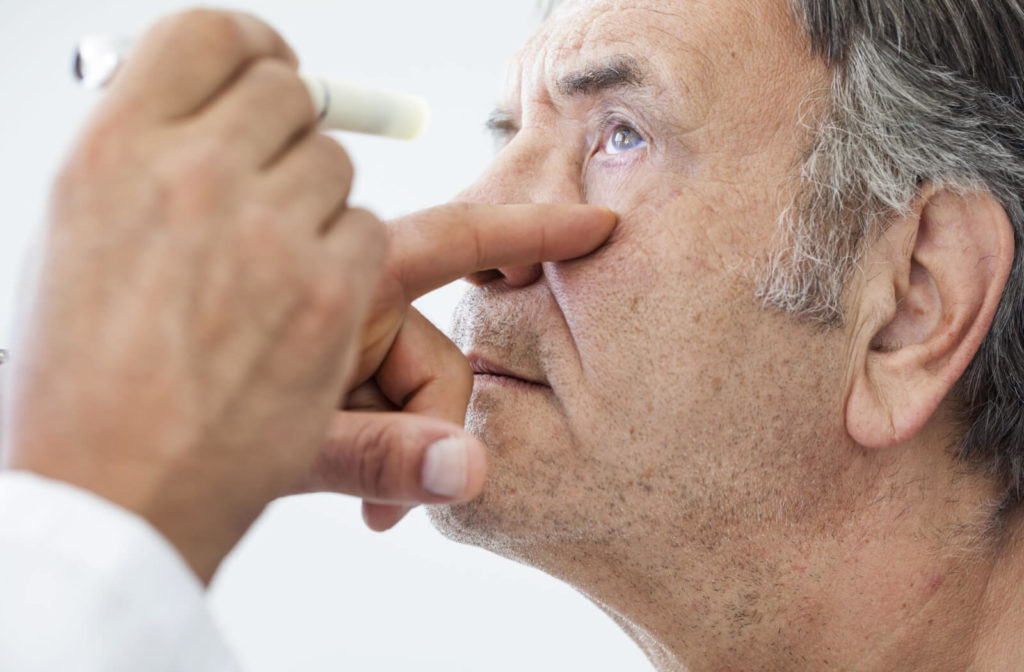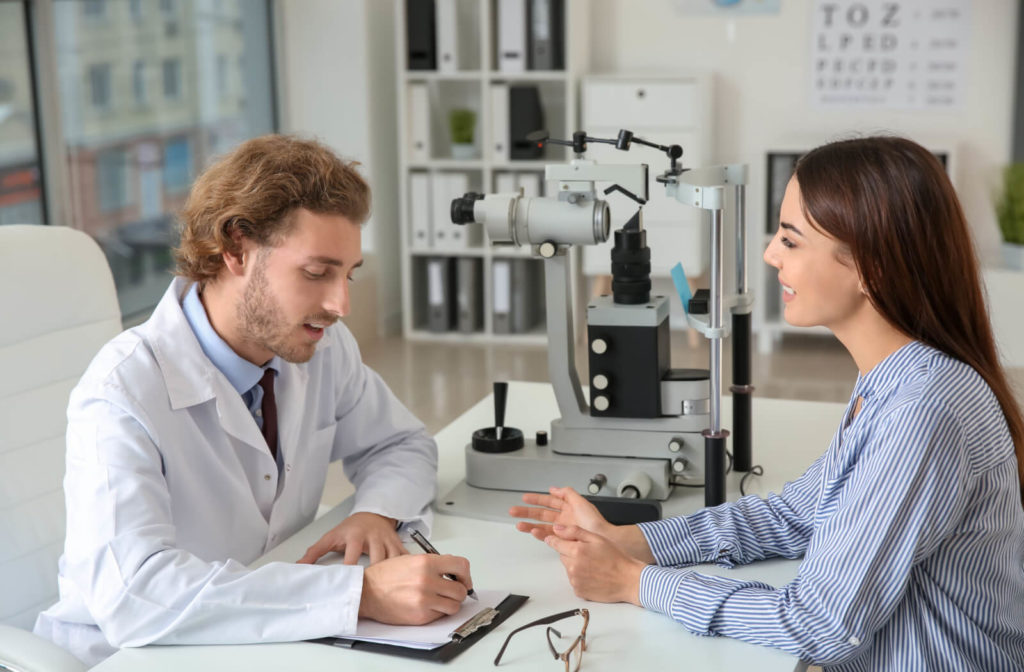Unless there is a dramatic change in our vision, we often think that we do not need to regularly go to the eye doctor. Sometimes eye exams are not done as frequently as they should be, but there are more reasons to get a regular exam than just dramatic changes to your vision.
Depending on your age, the frequency in which you may need an eye exam may vary. For adults between the ages of 18 to 60, it is important to have regularly scheduled eye exams every 2 years, even if there are no serious concerns or notable changes to your vision. Seniors over the age of 60 and children between the ages of 1 to 5 years old, will need to see their optometrist more frequently due to more rapid changes and early development in their eye health.
Depending on what condition your eye health is in and what your age is, an eye exam, even a comprehensive one, will only last around 60 minutes. Your optometrist will be able to cover a lot throughout your exam but based on your individual condition and concerns, your exam could run longer depending on the issues that you might need to discuss. Should you have any concerns or symptoms that you are unsure about, you should discuss with your optometrist how frequently you are visiting so that your health can be monitored and can be noted.
Why Should I Have an Annual Eye Exam?
An annual eye exam can help for early detection of problems with your vision in the early stages. Oftentimes, your optometrist will be able to detect certain conditions before they become too severe or irreversible. From early childhood to adulthood, your optometrist will be monitoring your eye health and looking at issues that you could be suffering from as your eyes age.
Eye Exams for Children
During childhood your eyes are changing and developing. During these early stages if there is something that starts to develop, your optometrist will be able to catch it before it becomes a bigger issue. The development of your eyes is important to monitor with regular eye exams.
For toddlers, children who are under 3 years of age, your optometrist will be looking to make sure that your child’s eyes are developing properly. They will be looking for such things as:
- Visual skills
- Depth perception
- Tracking
Children who are between the ages of 3 to 5 years old, will undergo a more comprehensive exam. This exam will monitor that their eyes and vision are developing properly and there are no growing signs to be concerned about. Your optometrist will be looking for early stages of eye diseases and different eye conditions like amblyopia (lazy eye) and strabismus, as they are known to develop at this age.
For school aged children between the ages of 6 to 18 years old, there are different concerns that can arise. Oftentimes, children do not say exactly what is bothering them. For this reason, it is important to notice if they are complaining about irritations or frustrations at school. The concerns that they are voicing could be an indicator of possible vision problems that could be treated before they become worse.
Some issues to look out for could include:
- Eye discomfort or fatigue
- Headaches
- Short attention spans or outbursts
- Holding reading material close to face
- Excessive eye rubbing or blinking or rubbing one eye
These could be early signs of a change in your child’s vision and should be noted to your optometrist.
Eye Exams for Adults
For adults, up to the age of 40, there can be significant changes to your visions and changes to your eye health. Many patients will start to notice changes to their vision at this age as this is when some diseases can be more apparent. At the age of 60, you will need to have your eyes checked more frequently. If you are effected by some of the following conditions, you will need to see your optometrist more often:
- If you wear contact lenses or prescription corrective glasses
- Have certain diseases, such as diabetes, that can increase your risk of eye disease
- There is a family history of eye disease or vision problems
- Are taking certain medications as there could be side effects

What Other Conditions Can My Optometrist Detect?
Many patients think that optometrists are only able to detect changes associated with your eyes and vision. While this is mainly what they are looking at, there are other health issues that your optometrist will be able to detect through regular eye exams. Some of the conditions and diseases that can be detected are:
- Aneurysm: An aneurysm may appear as a bubble in the wall of a blood vessel. These can be detected through severe headaches or loss of facial function in parts of the face.
- Diabetes: If there are leaks or yellow fluid behind the retina, these could be indicators of the disease. At times, this can be detected before the patient has even been diagnosed with diabetes.
- Vitamin A deficiency: Night blindness and dry eyes are often a sign of a vitamin A deficiency in your system.
- Heart disease: Typically people who have a history of heart disease in their family will have signs when their optometrist does comprehensive exams. There can be signs or marks left behind in the eye of the stroke.
- Cancer: Certain types of cancer, such as blood, tissue or skin will affect the outer part of the eye or eyelid.
- Rheumatoid Arthritis: Often times this disease is presented with severe eye pain and redness
- Thyroid disease: If your eyelids are retracting or your eyeballs are protruding, these could be indicators that you are suffering from thyroid complications.
- High Blood pressure: Blood vessels behind the eye that have unusual kinks or bends can be indicators of high blood pressure.
Schedule Your Next Eye Appointment
Your health is important to us and the optometrist at Total Vision and we want to make sure that we can do everything to make sure your health is in top condition.
If you are a new or active patient, the doctors are here to help you. Book an appointment today to learn how the optometrists at Hercules Optometric Group can help you.



